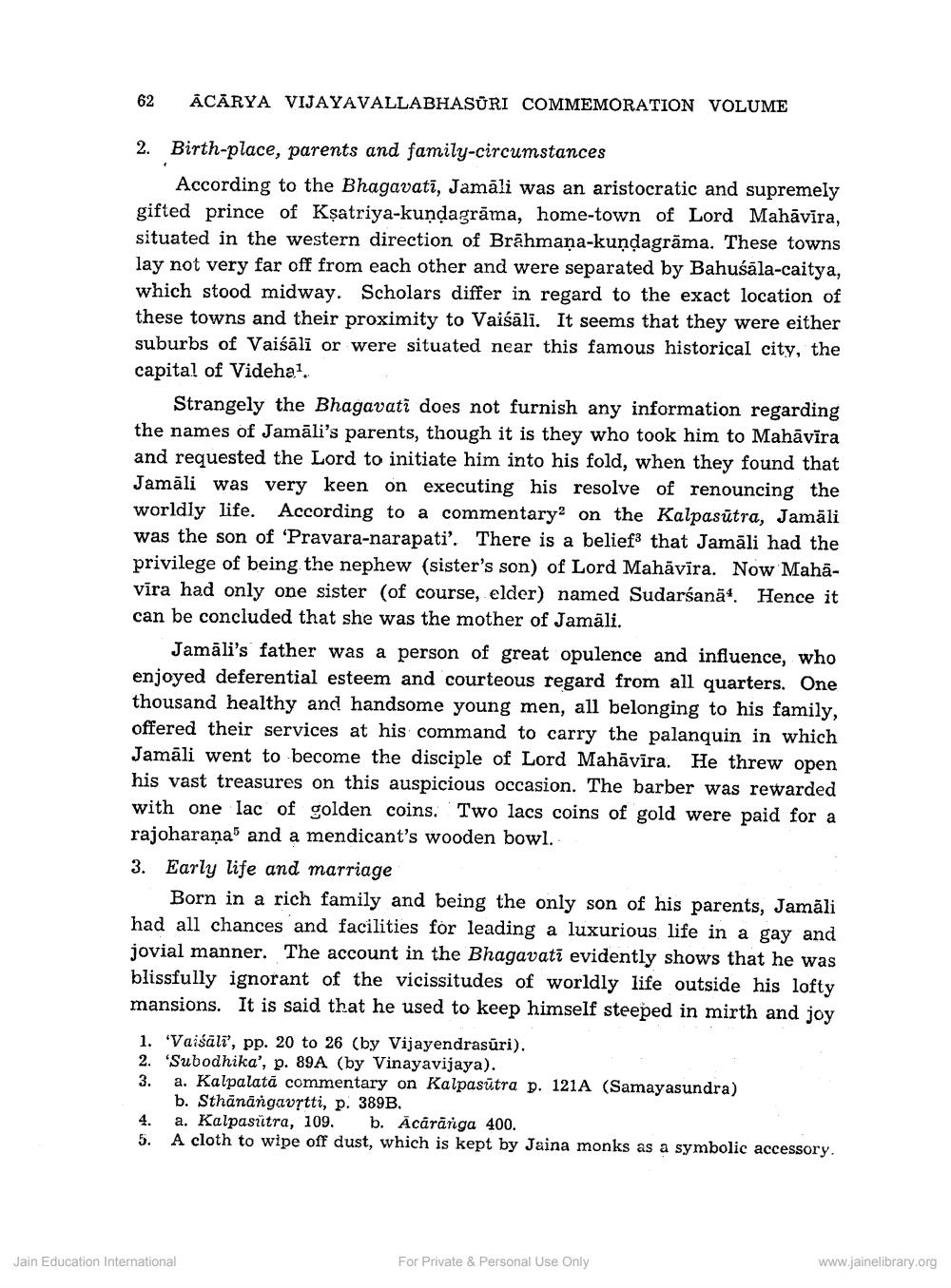________________
62
ACARYA VIJAYAVALLABHASŪRI COMMEMORATION VOLUME
2. Birth-place, parents and family-circumstances
According to the Bhagavati, Jamāli was an aristocratic and supremely gifted prince of Ksatriya-kundagrāma, home-town of Lord Mahāvira, situated in the western direction of Brāhmaṇa-kundagrāma. These towns lay not very far off from each other and were separated by Bahuśäla-caitya, which stood midway. Scholars differ in regard to the exact location of these towns and their proximity to Vaiśāli. It seems that they were either suburbs of Vaiśāli or were situated near this famous historical city, the capital of Videhal.
Strangely the Bhagavati does not furnish any information regarding the names of Jamāli's parents, though it is they who took him to Mahāvīra and requested the Lord to initiate him into his fold, when they found that Jamāli was very keen on executing his resolve of renouncing the worldly life. According to a commentary? on the Kalpasūtra, Jamāli was the son of 'Pravara-narapati'. There is a belief that Jamāli had the privilege of being the nephew (sister's son) of Lord Mahāvīra. Now Mahāvīra had only one sister (of course, elder) named Sudarsanāt. Hence it can be concluded that she was the mother of Jamāli.
Jamāli's father was a person of great opulence and influence, who enjoyed deferential esteem and courteous regard from all quarters. One thousand healthy and handsome young men, all belonging to his family, offered their services at his command to carry the palanquin in which Jamāli went to become the disciple of Lord Mahāvīra. He threw open his vast treasures on this auspicious occasion. The barber was rewarded with one lac of golden coins. Two lacs coins of gold were paid for a rajoharaņa" and a mendicant's wooden bowl. 3. Early life and marriage
Born in a rich family and being the only son of his parents, Jamāli had all chances and facilities for leading a luxurious life in a gay and jovial manner. The account in the Bhagavati evidently shows that he was blissfully ignorant of the vicissitudes of worldly life outside his lofty mansions. It is said that he used to keep himself steeped in mirth and joy
1. "Vaisali', pp. 20 to 26 (by Vijayendrasüri). 2. "Subodhika', p. 89A (by Vinayavijaya). 3. a. Kalpalată commentary on Kalpasūtra p. 121A (Samayasundra)
b. Sthānangavrtti, p. 389B. 4. a. Kalpasutra, 109. b. Acarariga 400. 5. A cloth to wipe off dust, which is kept by Jaina monks as a symbolic accessory.
For Private & Personal Use Only
Jain Education International
www.jainelibrary.org




